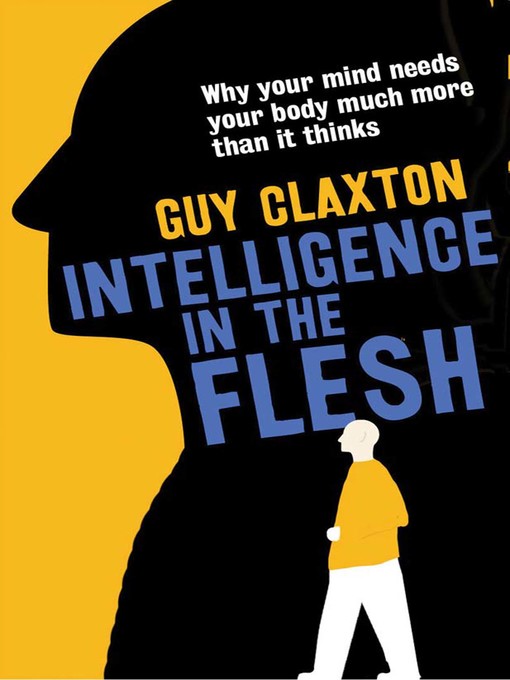
Intelligence in the Flesh
Why Your Mind Needs Your Body Much More Than It Thinks
چرا ذهن شما به بدن شما نیاز بیشتری دارد؟
کتاب های مرتبط
- اطلاعات
- نقد و بررسی
- دیدگاه کاربران
نقد و بررسی

July 1, 2015
"We do not have bodies, we are bodies," writes Claxton (Emeritus, Learning Sciences/Univ. of Winchester; The Wayward Mind: An Intimate History of the Unconscious, 2005, etc.) in this challenge to the contemporary view of what it means to be intelligent. The author presents a strong case that "the proper substrate of the mind is not the brain alone but the entire body...a massive, seething, streaming collection of interconnected communications systems" that govern the interaction of elements within the body and how they relate to the environment as a whole. Claxton's intent is not to demean the individual's sense of identity or intellectual activity but to enrich it to include practical activities that are often disparaged as menial in comparison to supposedly dispassionate, rational thought processes. This is what he calls "a Cinderella concept [of the body] denigrated and disdained by the fictional Ugly Sisters of Mind and Soul." A functioning brain depends on not only chemicals-e.g. dopamine, serotonin, estrogen, and testosterone-but also a functioning immune system and sophisticated perceptual apparatus in order to maintain internal functions and responsiveness to environmental challenges. Our perception of the world allows us to plan actions and anticipate danger, intellectual activities critical to our survival and ability to reproduce. The author makes a convincing case that schematic approaches separating mental processes into different kinds of mental faculties are an improvement over the simplistic view of IQ, although they fail to give sufficient value to the practical intelligence necessary to navigate daily life. Consciousness does not reside solely in the brain as such but is "a particularly odd effluvium of perfectly explicable, material processes in the body-brain." Claxton also discusses how the "neurochemical loops and networks" that "underpin expertise" are too intricate for verbalization, but the attempt to verbalize can foster flexibility and creativity. A lively, balanced re-examination of the traditional mind-body issue in light of modern advances in neuroscience.
COPYRIGHT(2015) Kirkus Reviews, ALL RIGHTS RESERVED.

Starred review from September 15, 2015
A growing number of psychologists and educators are questioning the value of standardized tests and IQ tests and instead are embracing the idea of multiple intelligences. Claxton (Emeritus Professor of the Learning Sciences, Univ. of Winchester) takes the concept of multiple intelligences further by proposing a unified concept of mind and body and calling it embodied intelligence. Claxton asserts that the body is the core to our intelligence, and summarizes multiple studies that prove that learning is more complete when the body is engaged in the process. He thoughtfully critiques Cartesian systems, which place rational thought above emotion, human connection, and physical experience. He advocates for individuals and society to embrace an embodied lifestyle and includes information about techniques to help us reclaim bodily awareness. VERDICT This engaging book will particularly appeal to those who agree that the ability to make functional, beautiful objects, to repair things, and to sense and feel are equally as important as rational intelligence.--Beth Dalton, Littleton, CO
Copyright 2015 Library Journal, LLC Used with permission.

























دیدگاه کاربران